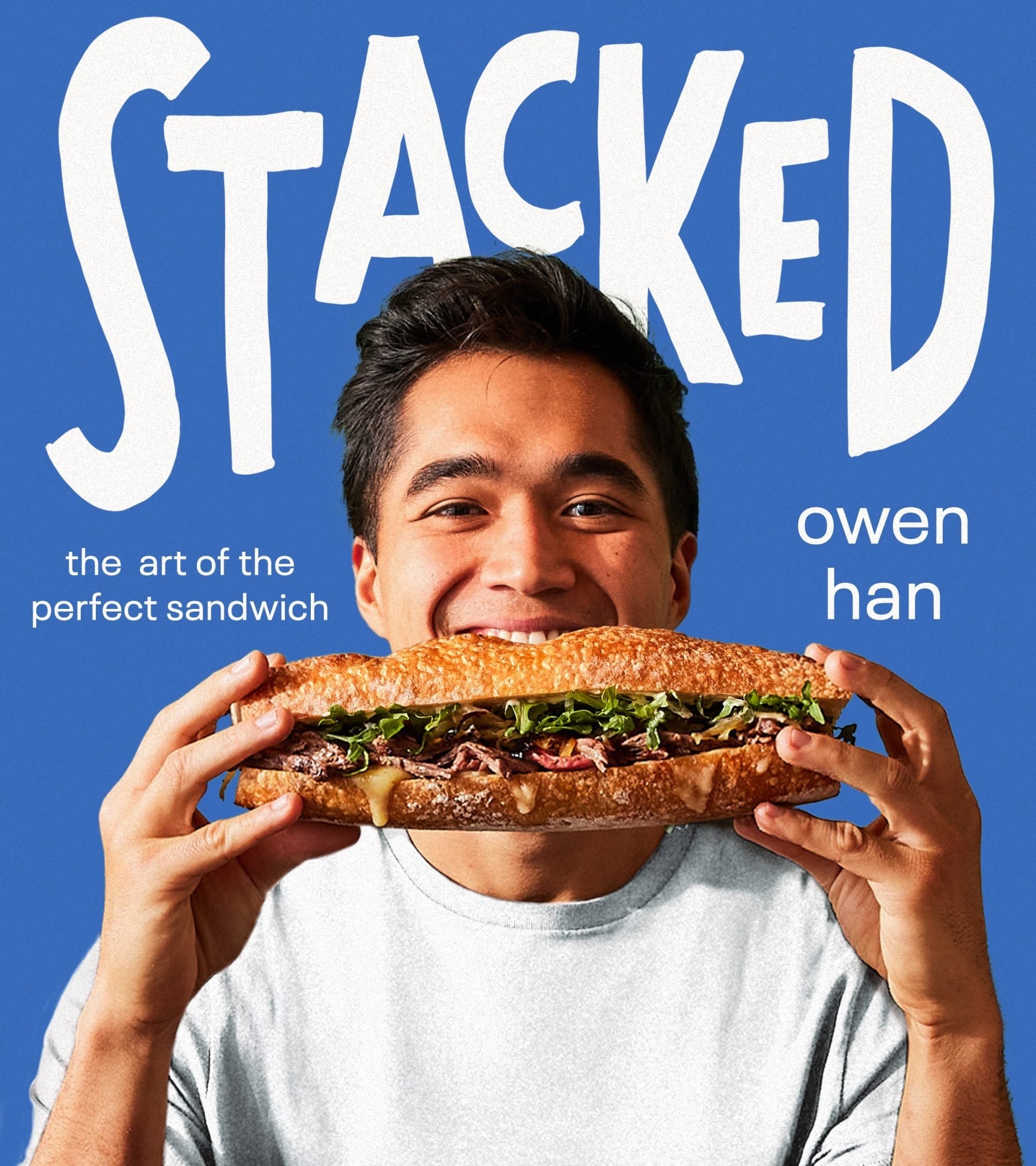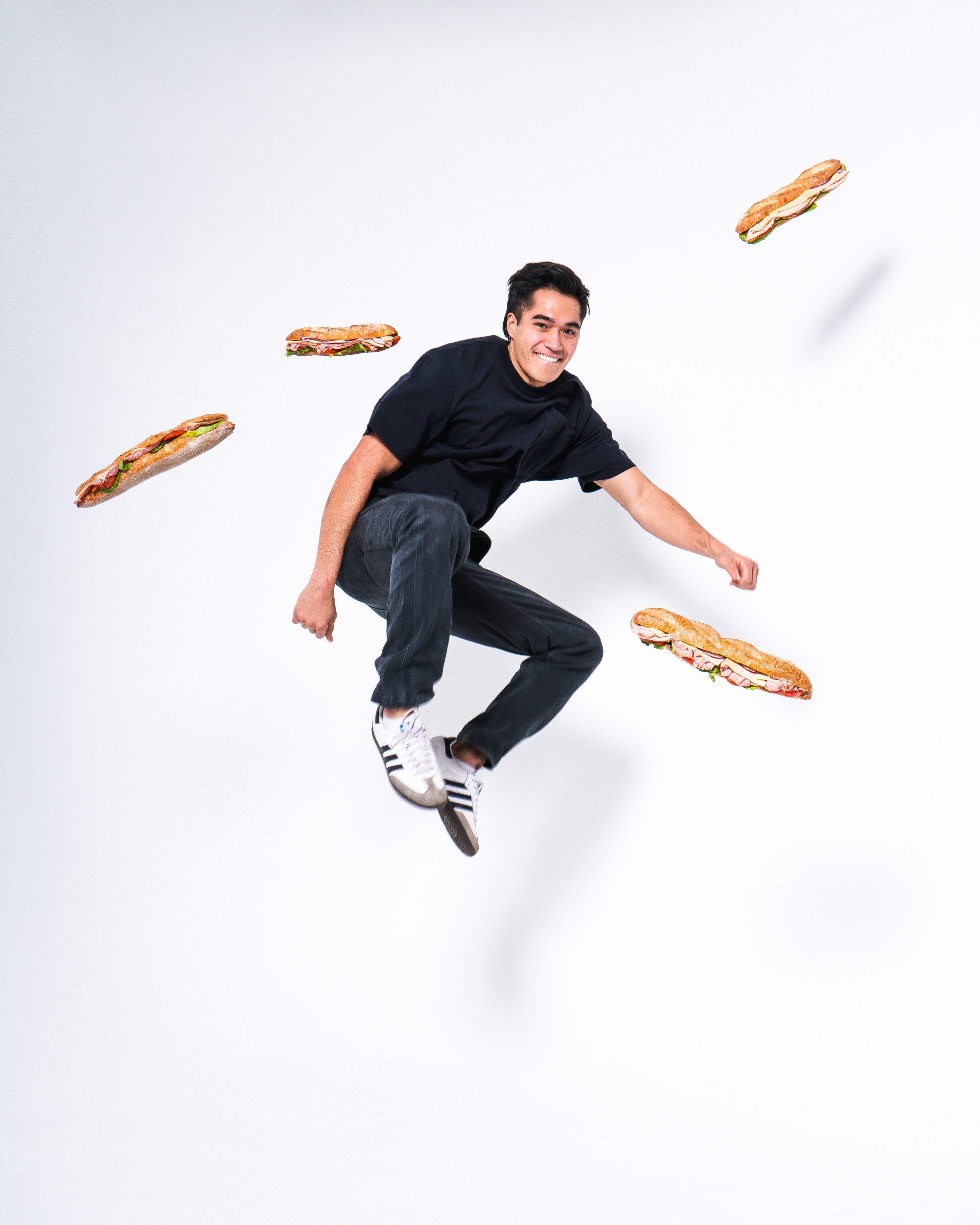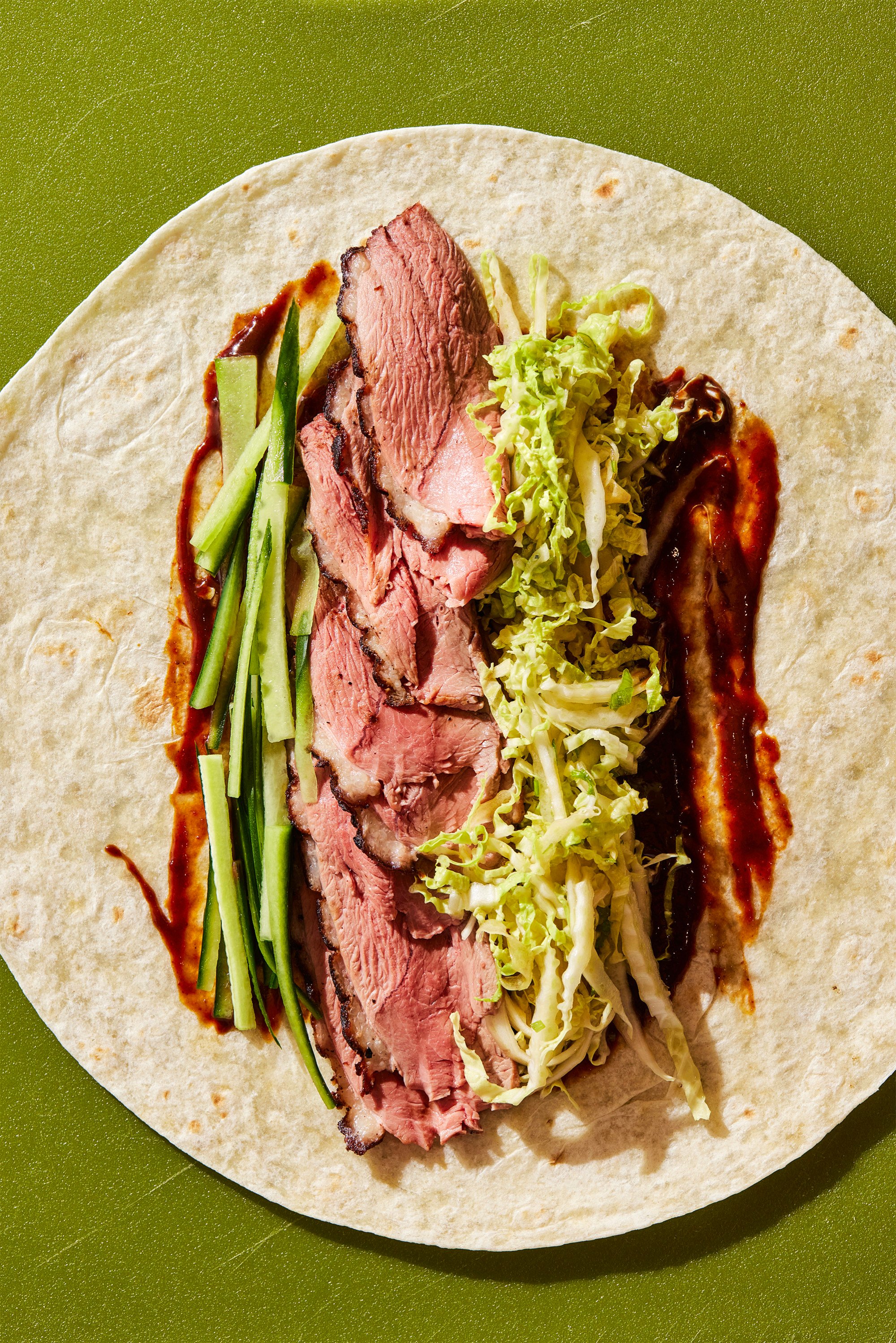Within two hours, it had more than 250,000 views, and today Han is one of the biggest names in food social media.
Available for pre-order on publisher Harper Collins’ website and out on October 15 this year, Stacked: The Art of the Perfect Sandwich boasts endorsements from famous chefs such as Ramsay and Giada De Laurentiis.
The book breaks down many of his signature recipes, including a steak “sando” with aioli and caramelised onion, a bao with hoisin pork burnt ends, and a bacon-and-egg biscuit sandwich with sriracha honey.

Han, however, does not look like your typical culinary superstar.
When we first met, at a restaurant event in Los Angeles last year, I had no clue who he was.
And “sandwich influencer” was not at all the answer I was expecting when I asked the tall and unassuming young man who happened to be standing next to me what he did for a living.
Born in Milan, Italy, Han grew up in Florida, in the United States, but, as a child, spent summers in a tiny Tuscan village with his Italian grandmother, or nonna, to whom he owes his passion for food and cooking, as well as his Chinese father.
“My nonna would cook traditional Italian meals and I absolutely fell in love with food and fresh produce,” he says. “But back at home, my dad was the main cook in our family, and that’s where I was exposed to Chinese food like dumplings, egg rolls and pork hock.
“These two cuisines gave me a foundation for just loving food.
“And I was super chubby as a kid,” he adds, laughing.

Han’s late father – a concert pianist born in Ohio to Shanghainese immigrants – met his Italian mother when she was working as a flight attendant on the New York-to-Milan route he often flew for work.
Because Han’s mother could not really cook, his father became adept at making both Italian and Chinese dishes for his large family, in which Han is the second youngest of six children.
By the time Han hit his teens, he knew he wanted to do something food-related as a career, and to that end, moved to Los Angeles to do a degree in economics and nutrition at the University of Southern California.
But Covid-19 would claim the life of his father, and Han, devastated, found it increasingly hard to work there, especially seeing other patients and their families dealing with their own tragedies.
So he quit, and when he was still between jobs, his Korean-American roommate, H. Woo Lee, who had been doing well posting recipes on TikTok and Instagram as @hwoo.lee, encouraged him to do the same.
And after that viral shrimp toast – a recipe from a tattered cookbook owned by Han’s Chinese grandmother, who would always make it for him when he visited her in San Francisco – he decided to become a full-time content creator.
“That’s one positive thing about social media: it’s introducing new foods and showing a wide variety of cuisines that people aren’t accustomed to or notice,” Han says, noting that most of his followers seem to be in their twenties and thirties, most of them in the US, but with more Asian followers on his YouTube channel.
He draws inspiration from places he has visited, including Hong Kong.
Stacked explains how Peking duck is traditionally made before offering a pared-down but still delicious version wrapped in a tortilla.
“It’s one of my favourite things to eat, but obviously I’m not going to spend three days hanging a duck in my fridge and dry-ageing it and then pumping it with air,” he says. “So this was kind of like a little short cut using duck breast and all the good flavours, like the hoisin. And the tortilla is just a great hack.”

But something few aspiring content creators appreciate is just how much work goes into each video.
Han is a one-man show, and completely self-taught, when it comes to filming and editing his content, spending hours and sometimes weeks on a single post and obsessively researching ingredients and recipes.
His advice to aspiring creators? “Anyone trying to pursue this should do so purely for passion.
“I started out wanting to share these recipes because I thought the whole process was super fun. Not once did it cross my mind that this would be my job and I could do it full time.”
But to get to where Han is, you may have to live, breathe and quite literally dream it.
“It’s all I think of,” he says. “I go to bed looking forward to eating breakfast.
“There’ve been times when I’ve woken up in the middle of the night because something came to me in a dream and I will jot it down.
“And something will always come from it.”







